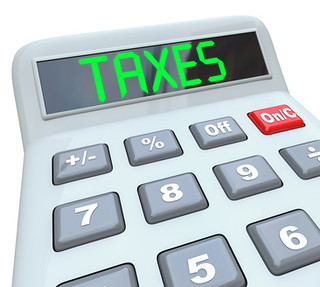Representation
Individual
taxpayers who are under audit by the IRS may
attend the audit in person without any assistance from a
tax professional.
However, this can be a dangerous mistake. Although not officially stated, it is
the job of an IRS Revenue Agents to conduct an audit with an eye toward finding
additional tax owed. With so many gray areas in
tax law, and considering the
tax code’s complexity, an individual who chooses to go it alone is a sitting
duck. Without extensive tax education and experience, the examiner can (and
sometimes will) say anything to find additional tax due on the return. Without
the necessary knowledge, the taxpayer is powerless to refute the agent’s
rationale.
Selection of Returns for Examination
Search for Unreported Income
The IRS performs matching functions to reconcile
information reported on Forms 1099 and W-2 with information reported on the
taxpayer’s return. If income reported by the taxpayer does not meet or exceed
amounts reported to the IRS, the taxpayer will receive either a bill for tax on
the difference or an audit notice.
Worker Reclassification Efforts
The IRS conducts joint employment audits with state tax agencies to determine
whether workers classified as independent contractors are in fact employees.
One initiative looks at employers who issue both Forms 1099 and W-2 to the same
employee in the same year, while a second examines employers issuing more than
five 1099-MISC forms exceeding $25,000 each to contractors with no other source
of income.
Schedule C, Profit or Loss From Business
Issues associated with sole proprietorships are common
audit triggers. The IRS has several approaches to achieve an increase in income
tax, as well as the assessment of self-employment tax.
• Unreported income. There is a relatively
high potential for unreported income from cash transactions with sole
proprietorships. The IRS will examine the taxpayer’s bank records to detect
deposits that are unaccounted for, compare revenue and expenses of similar
businesses, and in some cases will perform a “lifestyle” audit to reconstruct
income based on changes in the sole proprietor’s net worth based on valuation
of assets.
• Losses. Significant losses reported on
Schedule C, or losses continuing over two or more years, may increase the
chance of audit. If the IRS is successful in reclassifying an activity as a
hobby instead of a forprofit business, losses will be disallowed.
•Bartering.
The fair market value of products and services received through bartering can
be considered business income if the products or services rendered are
associated with
the sole proprietorship. If the sole proprietor trades through a barter
exchange program, the program will issue Form 1099-B, Proceeds from Broker and Barter Exchange Transactions.
Audit Procedures
Soft Notice
The IRS uses the Automated Underreporter (AUR) Soft Notice
to encourage taxpayers to self-correct income reporting with minimal burden and
resources. Notice CP 2057 is issued to certain taxpayers with apparent underreported income. The form informs the taxpayer that
there appears to be a discrepancy with the income types listed but does not
provide them with any type of calculations. It instructs the taxpayer to file a
Form 1040X to correct their return if the information shown on the notice is
correct. The IRS does not directly follow up these notices but taxpayers that
repeat their behavior will be identified in the following tax year.
Examination by Mail
The taxpayer receives Notice CP 2000 from the IRS
disclosing proposed changes. The taxpayer typically has 30 days to respond and
has three options to the IRS proposals.
• To
agree with all the proposals.
• To
partially agree with the changes.
• To
dispute all the changes proposed by the IRS.
The taxpayer is allowed to sign an authorization that
enables another party to represent him or her in connection with the Notice CP
2000. The authorization is part of Notice CP 2000, and a separate power of
attorney is not required.
Field Audit
The revenue agent will send a letter to the taxpayer
requesting that the taxpayer phone the agent. At that time, the date, location,
and agenda for the first meeting will be set. The taxpayer has the right to
request that the examination take place at a reasonable time and place that is
convenient for both the taxpayer and the IRS.
Audit Strategy
The best way to prepare for an audit is to put oneself into
the auditor’s shoes. Take the perspective that you are looking for anything
possible to increase the tax liability on the return. This is an area where a
qualified tax preparer can be invaluable.
Pose tough questions and “throw out” any questionable
deductions. Make sure any issue raised during an audit is something that has
already been considered. If the pre-audit function is performed properly, the actual audit will be more
comfortable, and you will be prepared for any negative adjustments.
Audit Video
The IRS has created a video web page to assist taxpayers
preparing for a small business audit. Go to the IRS website at
www.irsvideos.gov/audit.
Requesting a Different Auditor
A taxpayer or taxpayer’s representative has the right to
request a different auditor if the current one seems uncooperative, too busy,
or too inexperienced to properly consider the issues under examination. The
request should be made to the auditor’s supervisor by phone or in writing and
should include a detailed explanation of the reasons for the request.
Take It Seriously
Any comments made to an IRS employee that could be
interpreted as a threat against the employee will be taken seriously and fully
investigated. Advise clients not to joke around with IRS employees during an
examination.
Repeat Examinations
If a return was examined for the same items in either of
the two previous years, and no change was proposed to the tax liability,
contact the IRS immediately and the examination will likely be discontinued.
This policy is in accordance with IRC section 7605(b), which states that no
taxpayer shall be subjected to “unnecessary examinations.”






